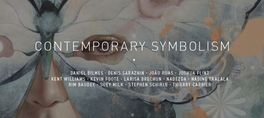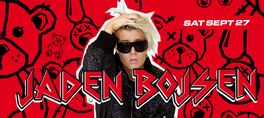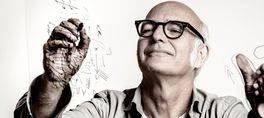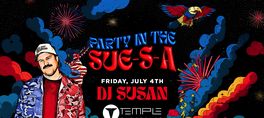In this complimentary workshop, mental health professionals will learn specific protocols on how to help clients navigate their own discomfort, manage the fight-or-flight response, and understand specific skills to change their self-destructive core beliefs. These skills can be applied in your practice immediately after completing the workshop.
Learning Takeaways:
1. How to Empower Clients to Create Change
To earn a client’s trust, you need to be their rock. You need to create a container of care that is impenetrable. When you’re 100 percent honest, that is when clients trust you the most, because they can see that you’re willing to go as far as it takes to get them to walk through their deep-seeded issues. There is room for them to be uncomfortable, and clients feel safe because you have the skillset to coach them through their discomfort. And that forms connection and confidence.Â
In this workshop, you will learn to set the context and boldly present to clients how they sabotage and resist change. By pointing out their coping mechanisms before they exhibit the behaviors, you establish buy-in and credibility. Now clients don’t spend their time resisting the pattern, and they are ready to dive into deeper work.
2. Break Clients’ Patterns of Blame and Denial
No one likes to hear they’re wrong. That’s why clients turn to blame or denial when they are faced with the truth about their behaviors, such as, “It’s not my fault, it’s her fault. No, you’re wrong – I don’t do that.†Clients avoid their discomfort at all costs because what is surfacing is the core belief: there is something wrong with me. The real issue is their lack of self-worth, not the stimulus of what the other person said.Â
Clients don’t see that this endless cycle of blame and denial does nothing to address and resolve the issue. In this workshop, professionals will learn how to guide clients through an experiential protocol where they will discover for themselves the fruitlessness of this protective mechanism. As this awareness occurs, the professional facilitates a profound change in the client’s core belief system.
 3. Use What’s in the Room
Every minute of every day, we are showing the world our core beliefs. Most people aren’t aware they’re doing it, but the beliefs show up in their behaviors. For example, when Gary laughs while talking about his divorce, he may be revealing how uncomfortable he is discussing the topic. Clients exhibit hundreds of these indicators, each of which is a brief window into the underlying beliefs that control their actions. These indicators are fast and fleeting, but when you are able to identify these flags, you cut through the noise and get to the heart of the issue.Â
In this workshop, you’ll learn the science of recognizing key indicators that signify that a core belief is at work. These skills open the door to countless prompts that are essential in helping clients who are struggling at making progress in their sessions.
 4. Thriving in Times of Stress and Pressure
Fortunately, the skills taught in this training do not only apply to clients. You spend your day focusing on your clients, your friends, your loved ones… and sometimes you fall to the end of the list. Being so giving is a wonderful trait, but it can be a heavy load to bear. Since this workshop is experientially-based, you will have the opportunity to actively use and benefit from these tools firsthand.
The Tools You Will Learn:
Core Belief Restructuringâ„¢ (CBR)
Core Belief Restructuring is a methodology based on mindful inquiry and Experiential Engagement Therapy™ by which professionals help their client learn how addictions and personal struggles are directly related to core beliefs. CBR is a process of observing oneself while the core beliefs are activated in the present moment. It’s an evidentiary method that catalyzes an experience in the body, during which the client experiences how the core belief is driving the behavior. With CBR, we work to change those core beliefs to decrease and even eliminate self-destructive behaviors, toxic shame, anxiety, panic and communication breakdown.
Stimulus/Belief/Response Engagement Therapy Model
The way we perceive situations and people is often tinted by the past. The Stimulus/Belief/Response Engagement Therapy Model will transform clients’ ability to see circumstances accurately without the burden of projections from their previous experiences.Â
Cognitive Learning vs. Experiential Learning
The highest form of learning is experiential.
Learning experientially allows clients to gain and retain a practical understanding to access full awareness of the underlying belief which is causing their reaction. This opens the door to addressing and changing the root cause of self-destructive behaviors and releasing previous trauma and unresolved pain.
Mindful Inquiry
When you ask questions, clients are guided to look inside themselves to figure out the answers. The science of inquiry is based on helping clients become aware of the beliefs from which they are operating. Through answering a series of specific questions aimed at accessing deep beliefs, clients get an experience of what’s working and what’s not. After a person has a firsthand experience of their destructive mindset, they can recognize the issue and change occurs.
Conscious Breathing
Breath is essential to healing and well-being. Professionals will learn this technique that addresses the instinctive fight-or-flight response and sheds light on limiting beliefs. Professionals will gain additional tools to teach clients to self-regulate and shift from anxiety to being fully present. Â
For additional information, please contact:
Emily Mast, Public Relations Specialist
808-756-0013 or [email protected]
For additional information, go to http://TheExclusiveHawaii.com/
More details will be made available about the location of the event closer to the date of the workshop.
Our intention of this workshop is to share valuable tools with caring professionals in an environment that revitalizes and inspires. We hope to see you there!
Â
show less
Learning Takeaways:
1. How to Empower Clients to Create Change
To earn a client’s trust, you need to be their rock. You need to create a container of care that is impenetrable. When you’re 100 percent honest, that is when clients trust you the most, because they can see that you’re willing to go as far as it takes to get them to walk through their deep-seeded issues. There is room for them to be uncomfortable, and clients feel safe because you have the skillset to coach them through their discomfort. And that forms connection and confidence.Â
In this workshop, you will learn to set the context and boldly present to clients how they sabotage and resist change. By pointing out their coping mechanisms before they exhibit the behaviors, you establish buy-in and credibility. Now clients don’t spend their time resisting the pattern, and they are ready to dive into deeper work.
2. Break Clients’ Patterns of Blame and Denial
No one likes to hear they’re wrong. That’s why clients turn to blame or denial when they are faced with the truth about their behaviors, such as, “It’s not my fault, it’s her fault. No, you’re wrong – I don’t do that.†Clients avoid their discomfort at all costs because what is surfacing is the core belief: there is something wrong with me. The real issue is their lack of self-worth, not the stimulus of what the other person said.Â
Clients don’t see that this endless cycle of blame and denial does nothing to address and resolve the issue. In this workshop, professionals will learn how to guide clients through an experiential protocol where they will discover for themselves the fruitlessness of this protective mechanism. As this awareness occurs, the professional facilitates a profound change in the client’s core belief system.
 3. Use What’s in the Room
Every minute of every day, we are showing the world our core beliefs. Most people aren’t aware they’re doing it, but the beliefs show up in their behaviors. For example, when Gary laughs while talking about his divorce, he may be revealing how uncomfortable he is discussing the topic. Clients exhibit hundreds of these indicators, each of which is a brief window into the underlying beliefs that control their actions. These indicators are fast and fleeting, but when you are able to identify these flags, you cut through the noise and get to the heart of the issue.Â
In this workshop, you’ll learn the science of recognizing key indicators that signify that a core belief is at work. These skills open the door to countless prompts that are essential in helping clients who are struggling at making progress in their sessions.
 4. Thriving in Times of Stress and Pressure
Fortunately, the skills taught in this training do not only apply to clients. You spend your day focusing on your clients, your friends, your loved ones… and sometimes you fall to the end of the list. Being so giving is a wonderful trait, but it can be a heavy load to bear. Since this workshop is experientially-based, you will have the opportunity to actively use and benefit from these tools firsthand.
The Tools You Will Learn:
Core Belief Restructuringâ„¢ (CBR)
Core Belief Restructuring is a methodology based on mindful inquiry and Experiential Engagement Therapy™ by which professionals help their client learn how addictions and personal struggles are directly related to core beliefs. CBR is a process of observing oneself while the core beliefs are activated in the present moment. It’s an evidentiary method that catalyzes an experience in the body, during which the client experiences how the core belief is driving the behavior. With CBR, we work to change those core beliefs to decrease and even eliminate self-destructive behaviors, toxic shame, anxiety, panic and communication breakdown.
Stimulus/Belief/Response Engagement Therapy Model
The way we perceive situations and people is often tinted by the past. The Stimulus/Belief/Response Engagement Therapy Model will transform clients’ ability to see circumstances accurately without the burden of projections from their previous experiences.Â
Cognitive Learning vs. Experiential Learning
The highest form of learning is experiential.
Learning experientially allows clients to gain and retain a practical understanding to access full awareness of the underlying belief which is causing their reaction. This opens the door to addressing and changing the root cause of self-destructive behaviors and releasing previous trauma and unresolved pain.
Mindful Inquiry
When you ask questions, clients are guided to look inside themselves to figure out the answers. The science of inquiry is based on helping clients become aware of the beliefs from which they are operating. Through answering a series of specific questions aimed at accessing deep beliefs, clients get an experience of what’s working and what’s not. After a person has a firsthand experience of their destructive mindset, they can recognize the issue and change occurs.
Conscious Breathing
Breath is essential to healing and well-being. Professionals will learn this technique that addresses the instinctive fight-or-flight response and sheds light on limiting beliefs. Professionals will gain additional tools to teach clients to self-regulate and shift from anxiety to being fully present. Â
For additional information, please contact:
Emily Mast, Public Relations Specialist
808-756-0013 or [email protected]
For additional information, go to http://TheExclusiveHawaii.com/
More details will be made available about the location of the event closer to the date of the workshop.
Our intention of this workshop is to share valuable tools with caring professionals in an environment that revitalizes and inspires. We hope to see you there!
Â
In this complimentary workshop, mental health professionals will learn specific protocols on how to help clients navigate their own discomfort, manage the fight-or-flight response, and understand specific skills to change their self-destructive core beliefs. These skills can be applied in your practice immediately after completing the workshop.
Learning Takeaways:
1. How to Empower Clients to Create Change
To earn a client’s trust, you need to be their rock. You need to create a container of care that is impenetrable. When you’re 100 percent honest, that is when clients trust you the most, because they can see that you’re willing to go as far as it takes to get them to walk through their deep-seeded issues. There is room for them to be uncomfortable, and clients feel safe because you have the skillset to coach them through their discomfort. And that forms connection and confidence.Â
In this workshop, you will learn to set the context and boldly present to clients how they sabotage and resist change. By pointing out their coping mechanisms before they exhibit the behaviors, you establish buy-in and credibility. Now clients don’t spend their time resisting the pattern, and they are ready to dive into deeper work.
2. Break Clients’ Patterns of Blame and Denial
No one likes to hear they’re wrong. That’s why clients turn to blame or denial when they are faced with the truth about their behaviors, such as, “It’s not my fault, it’s her fault. No, you’re wrong – I don’t do that.†Clients avoid their discomfort at all costs because what is surfacing is the core belief: there is something wrong with me. The real issue is their lack of self-worth, not the stimulus of what the other person said.Â
Clients don’t see that this endless cycle of blame and denial does nothing to address and resolve the issue. In this workshop, professionals will learn how to guide clients through an experiential protocol where they will discover for themselves the fruitlessness of this protective mechanism. As this awareness occurs, the professional facilitates a profound change in the client’s core belief system.
 3. Use What’s in the Room
Every minute of every day, we are showing the world our core beliefs. Most people aren’t aware they’re doing it, but the beliefs show up in their behaviors. For example, when Gary laughs while talking about his divorce, he may be revealing how uncomfortable he is discussing the topic. Clients exhibit hundreds of these indicators, each of which is a brief window into the underlying beliefs that control their actions. These indicators are fast and fleeting, but when you are able to identify these flags, you cut through the noise and get to the heart of the issue.Â
In this workshop, you’ll learn the science of recognizing key indicators that signify that a core belief is at work. These skills open the door to countless prompts that are essential in helping clients who are struggling at making progress in their sessions.
 4. Thriving in Times of Stress and Pressure
Fortunately, the skills taught in this training do not only apply to clients. You spend your day focusing on your clients, your friends, your loved ones… and sometimes you fall to the end of the list. Being so giving is a wonderful trait, but it can be a heavy load to bear. Since this workshop is experientially-based, you will have the opportunity to actively use and benefit from these tools firsthand.
The Tools You Will Learn:
Core Belief Restructuringâ„¢ (CBR)
Core Belief Restructuring is a methodology based on mindful inquiry and Experiential Engagement Therapy™ by which professionals help their client learn how addictions and personal struggles are directly related to core beliefs. CBR is a process of observing oneself while the core beliefs are activated in the present moment. It’s an evidentiary method that catalyzes an experience in the body, during which the client experiences how the core belief is driving the behavior. With CBR, we work to change those core beliefs to decrease and even eliminate self-destructive behaviors, toxic shame, anxiety, panic and communication breakdown.
Stimulus/Belief/Response Engagement Therapy Model
The way we perceive situations and people is often tinted by the past. The Stimulus/Belief/Response Engagement Therapy Model will transform clients’ ability to see circumstances accurately without the burden of projections from their previous experiences.Â
Cognitive Learning vs. Experiential Learning
The highest form of learning is experiential.
Learning experientially allows clients to gain and retain a practical understanding to access full awareness of the underlying belief which is causing their reaction. This opens the door to addressing and changing the root cause of self-destructive behaviors and releasing previous trauma and unresolved pain.
Mindful Inquiry
When you ask questions, clients are guided to look inside themselves to figure out the answers. The science of inquiry is based on helping clients become aware of the beliefs from which they are operating. Through answering a series of specific questions aimed at accessing deep beliefs, clients get an experience of what’s working and what’s not. After a person has a firsthand experience of their destructive mindset, they can recognize the issue and change occurs.
Conscious Breathing
Breath is essential to healing and well-being. Professionals will learn this technique that addresses the instinctive fight-or-flight response and sheds light on limiting beliefs. Professionals will gain additional tools to teach clients to self-regulate and shift from anxiety to being fully present. Â
For additional information, please contact:
Emily Mast, Public Relations Specialist
808-756-0013 or [email protected]
For additional information, go to http://TheExclusiveHawaii.com/
More details will be made available about the location of the event closer to the date of the workshop.
Our intention of this workshop is to share valuable tools with caring professionals in an environment that revitalizes and inspires. We hope to see you there!
Â
read more
Learning Takeaways:
1. How to Empower Clients to Create Change
To earn a client’s trust, you need to be their rock. You need to create a container of care that is impenetrable. When you’re 100 percent honest, that is when clients trust you the most, because they can see that you’re willing to go as far as it takes to get them to walk through their deep-seeded issues. There is room for them to be uncomfortable, and clients feel safe because you have the skillset to coach them through their discomfort. And that forms connection and confidence.Â
In this workshop, you will learn to set the context and boldly present to clients how they sabotage and resist change. By pointing out their coping mechanisms before they exhibit the behaviors, you establish buy-in and credibility. Now clients don’t spend their time resisting the pattern, and they are ready to dive into deeper work.
2. Break Clients’ Patterns of Blame and Denial
No one likes to hear they’re wrong. That’s why clients turn to blame or denial when they are faced with the truth about their behaviors, such as, “It’s not my fault, it’s her fault. No, you’re wrong – I don’t do that.†Clients avoid their discomfort at all costs because what is surfacing is the core belief: there is something wrong with me. The real issue is their lack of self-worth, not the stimulus of what the other person said.Â
Clients don’t see that this endless cycle of blame and denial does nothing to address and resolve the issue. In this workshop, professionals will learn how to guide clients through an experiential protocol where they will discover for themselves the fruitlessness of this protective mechanism. As this awareness occurs, the professional facilitates a profound change in the client’s core belief system.
 3. Use What’s in the Room
Every minute of every day, we are showing the world our core beliefs. Most people aren’t aware they’re doing it, but the beliefs show up in their behaviors. For example, when Gary laughs while talking about his divorce, he may be revealing how uncomfortable he is discussing the topic. Clients exhibit hundreds of these indicators, each of which is a brief window into the underlying beliefs that control their actions. These indicators are fast and fleeting, but when you are able to identify these flags, you cut through the noise and get to the heart of the issue.Â
In this workshop, you’ll learn the science of recognizing key indicators that signify that a core belief is at work. These skills open the door to countless prompts that are essential in helping clients who are struggling at making progress in their sessions.
 4. Thriving in Times of Stress and Pressure
Fortunately, the skills taught in this training do not only apply to clients. You spend your day focusing on your clients, your friends, your loved ones… and sometimes you fall to the end of the list. Being so giving is a wonderful trait, but it can be a heavy load to bear. Since this workshop is experientially-based, you will have the opportunity to actively use and benefit from these tools firsthand.
The Tools You Will Learn:
Core Belief Restructuringâ„¢ (CBR)
Core Belief Restructuring is a methodology based on mindful inquiry and Experiential Engagement Therapy™ by which professionals help their client learn how addictions and personal struggles are directly related to core beliefs. CBR is a process of observing oneself while the core beliefs are activated in the present moment. It’s an evidentiary method that catalyzes an experience in the body, during which the client experiences how the core belief is driving the behavior. With CBR, we work to change those core beliefs to decrease and even eliminate self-destructive behaviors, toxic shame, anxiety, panic and communication breakdown.
Stimulus/Belief/Response Engagement Therapy Model
The way we perceive situations and people is often tinted by the past. The Stimulus/Belief/Response Engagement Therapy Model will transform clients’ ability to see circumstances accurately without the burden of projections from their previous experiences.Â
Cognitive Learning vs. Experiential Learning
The highest form of learning is experiential.
Learning experientially allows clients to gain and retain a practical understanding to access full awareness of the underlying belief which is causing their reaction. This opens the door to addressing and changing the root cause of self-destructive behaviors and releasing previous trauma and unresolved pain.
Mindful Inquiry
When you ask questions, clients are guided to look inside themselves to figure out the answers. The science of inquiry is based on helping clients become aware of the beliefs from which they are operating. Through answering a series of specific questions aimed at accessing deep beliefs, clients get an experience of what’s working and what’s not. After a person has a firsthand experience of their destructive mindset, they can recognize the issue and change occurs.
Conscious Breathing
Breath is essential to healing and well-being. Professionals will learn this technique that addresses the instinctive fight-or-flight response and sheds light on limiting beliefs. Professionals will gain additional tools to teach clients to self-regulate and shift from anxiety to being fully present. Â
For additional information, please contact:
Emily Mast, Public Relations Specialist
808-756-0013 or [email protected]
For additional information, go to http://TheExclusiveHawaii.com/
More details will be made available about the location of the event closer to the date of the workshop.
Our intention of this workshop is to share valuable tools with caring professionals in an environment that revitalizes and inspires. We hope to see you there!
Â
show less
Date/Times:
550 37th Avenue, San Francisco, CA 94121
The Best Events
Every Week in Your Inbox
From Our Sponsors
UPCOMING EVENTS
Great suggestion! We'll be in touch.
Event reviewed successfully.









